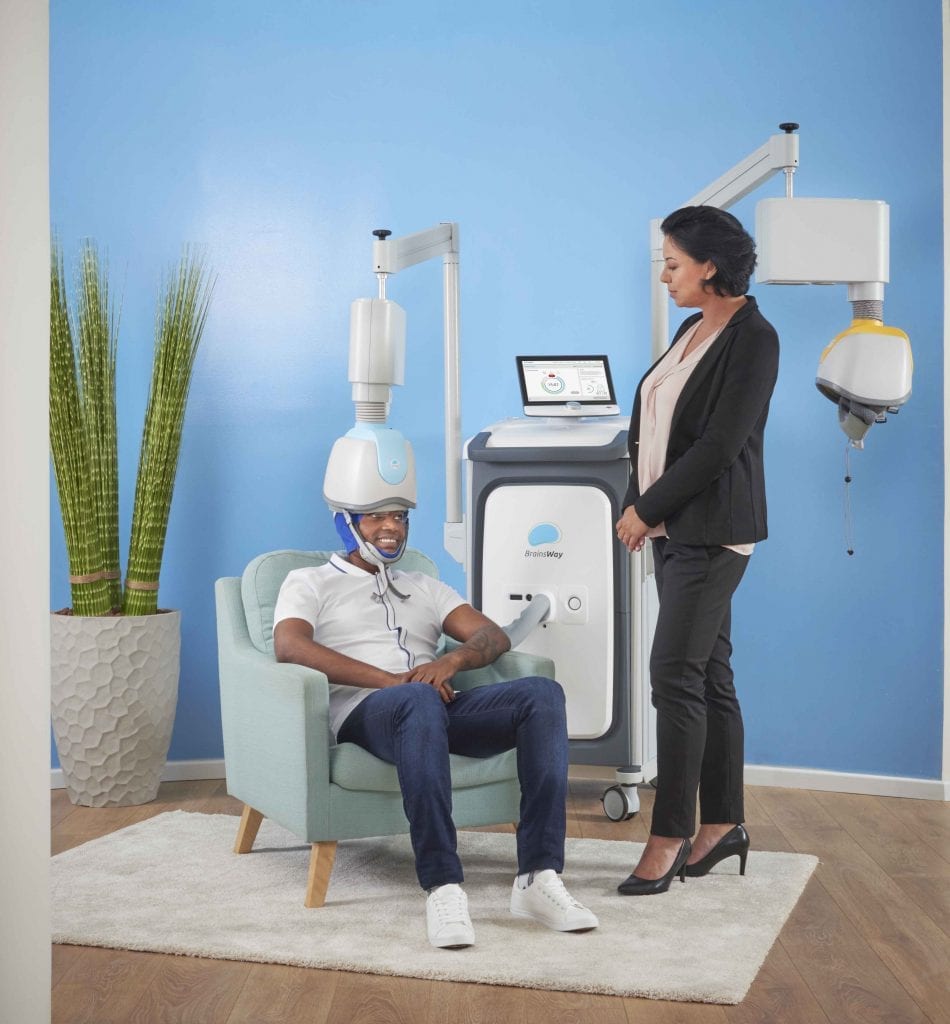
BrainsWay’s Deep Transcranial Magnetic Stimulation, or Deep TMS™, is a noninvasive treatment therapy proven to help alleviate mental health illnesses and contribute to a better quality of life. Deep TMS therapy side effects normally do not include any significant discomfort, with patients usually reporting only a mild discomfort. During the Deep TMS process, the patient can hear a tapping sound and some pressure on the treatment site the Deep TMS machine is focusing on. The patient is supplied with earplugs to minimize the sound. The Deep TMS process can also involve some mild pain on the side of the patient’s head, which typically passes once the treatment is over, with most patients not reporting experiencing it later on.
In addition to the above real-time reactions, some mild and passing side effects have been reported by a minority of patients: in a recent BrainsWay study from 2019, patients suffering from major depressive disorder (MDD) who underwent Deep TMS treatment reported experiencing a headache following treatment. A small percentage of patients also reported site discomfort, site pain, jaw pain, lightheadedness, or insomnia following their treatment. While there is a rare risk of seizures to all forms of TMS, it is either less than or comparable to seizure rates experienced with antidepressant medication.
As BrainsWay’s Deep TMS process is noninvasive, all the equipment involved operates completely outside the body, without penetration of the skin. In cases where the patient experiences local discomfort during the procedure, the Deep TMS helmet placed over the patient’s head can be adjusted by the system operator to help diminish it.